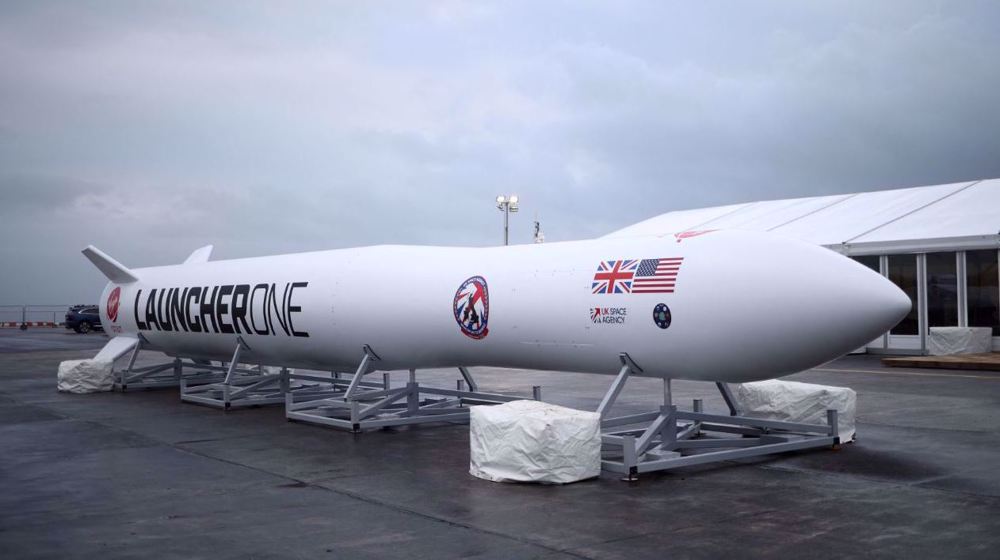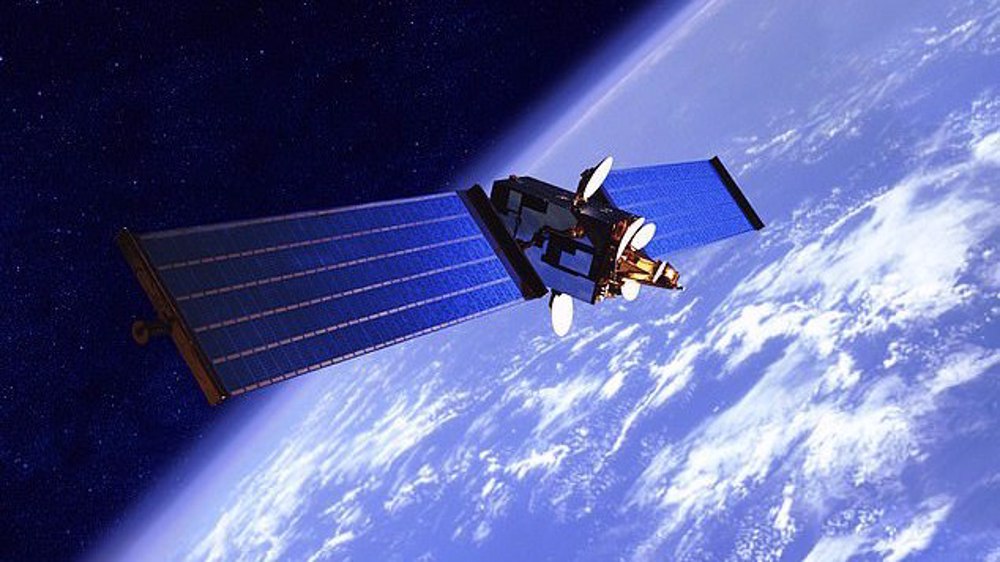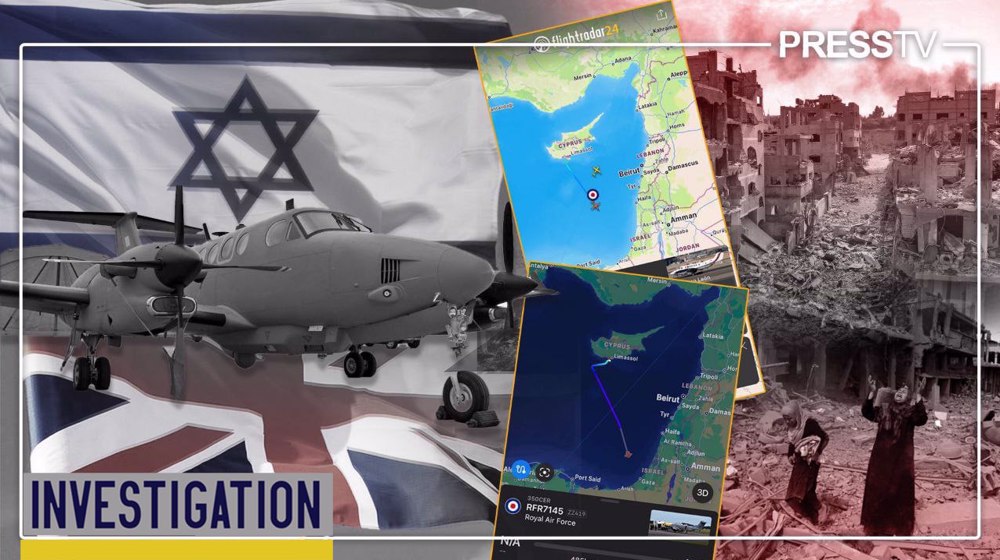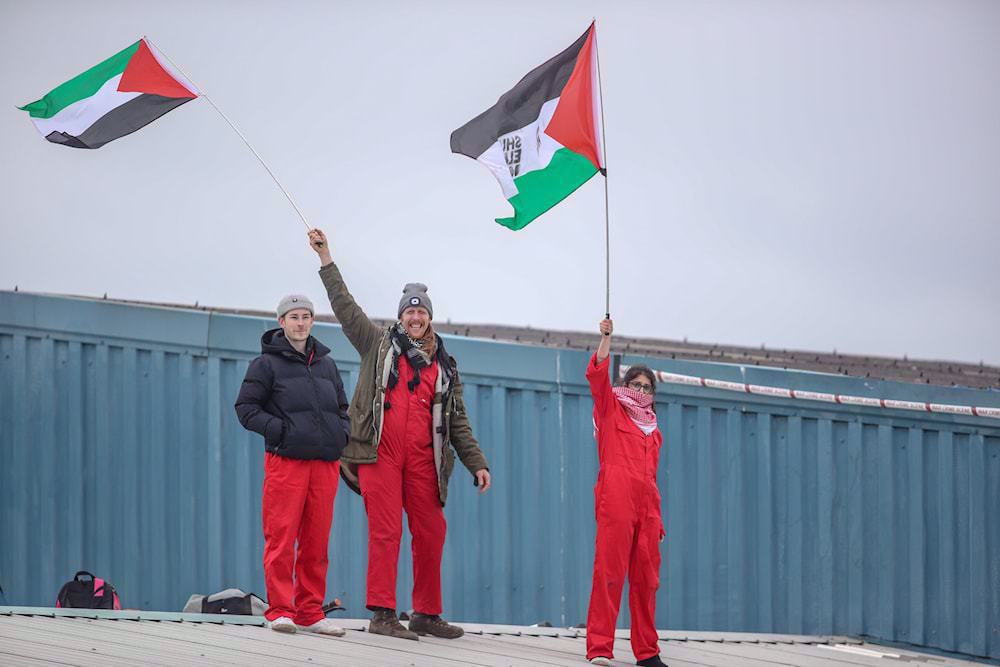UK's first space launch of military satellites ends in failure
The UK's attempt to become the first Western European nation to put satellites into space from a base on home soil has failed after a LauncherOne rocket missed the designated orbit.
British billionaire Richard Branson's Virgin Orbit had planned to launch nine satellites from the 21-meter LauncherOne rocket attached under the wing of a modified Boeing 747 flown from a new spaceport in Newquay in Cornwall, southwest England, at 2202 GMT on Monday.
Virgin Orbit officials announced on Tuesday that a still-unexplained anomaly had occurred during the firing of the rocket's second stage engine, ending the mission.
The two-stage rocket took off from Cornwall attached to the Boeing 747, and then detached from the aircraft and ignited as planned at a height of 35,000 feet over the Atlantic Ocean to the south of Ireland at around 2315 GMT. But in a series of tweets as the rocket was due to enter orbit and discharge its nine satellites, Virgin Orbit said, "We appear to have an anomaly that has prevented us from reaching orbit."
The rocket had nine small satellites on board, including several military and security payloads.
Among the military payloads was one program linked to the US Naval Research Lab and another linked to the British Defense Science and Technology Laboratory (Dstl).
Two cereal-box sized Prometheus-2 cubesats developed by the British government at In-Space Missions Ltd, based in Hampshire, and designed with Airbus Defence and Space in collaboration with the US National Reconnaissance Office (NRO) were planned to operate in low Earth orbit, providing a test platform for imaging and monitoring radio signals, including GPS.
The two had separate equipment installed to test concepts in support of the British MoD's ISTARI program for future space-based intelligence and surveillance.
The US Navy and the Dstl were also working on a satellite in the Circe program, a coordinated ionospheric reconstruction cubesat experiment meant to have been placed in orbit on board LauncherOne. The collaborative space mission involved investigating the ionosphere, an important area of space impacting GPS, communications, and sensing technology.
A third, defense-related security satellite program on board the rocket, known as Amber 1 satellite, was designed for maritime intelligence gathering.
The Virgin Orbit launch was meant to be the first of 20 or more such payloads to provide maritime domain awareness.
The failure of the mission is considered a heavy blow to Britain's military space programs, showcasing the UK's weakness in launching satellites. Had the mission been successful, the UK would have been one of only nine countries that could launch craft into Earth's orbit.
"Joining that really exclusive club of launch nations is so important because it gives us our own access to space... that we've never had before here in the UK," Spaceport Cornwall chief Melissa Thorpe told BBC television before the launch.
Matt Archer, director of commercial spaceflight at the UK Space Agency, described the result of the failed mission as "disappointing."
Meanwhile, anti-war campaigners expressed outrage over the failed efforts of the British government, saying London should be focused on resolving the UK's cost-of-living crisis and social injustices, which have led to months-long protests and strikes across the country.
"Space is the new frontier for military escalation and spending with no real public scrutiny or accountability," said Campaign for Nuclear Disarmament (CND) General Secretary Kate Hudson. "Billions of pounds are being spent on this new arms race which could instead be invested in helping to solve the current cost of living crisis."
Drone Wars UK Director Chris Cole denounced a "space arms race which will inevitably lead to greater risk of instability and conflict."
Critics argue that rather than engaging in the military expansion into space, the British government should be upholding and abiding by the Outer Space Treaty, ratified in 1967, which recognizes space as a "global commons" to be used for peaceful purposes and for the benefit of all countries and humankind. The multilateral treaty, which was negotiated and drafted under the auspices of the United Nations and forms the basis of international space law, aims to prevent military and commercial exploitation of space and the damage it would cause.
China ‘firmly opposes’ US military aid to Taiwan
VIDEO | Press TV's News Headlines
President Yoon Suk Yeol to be removed from office
At least 19 Gazans killed by Israeli airstrikes since dawn: Medics
Leader: Iran neither has nor needs proxy forces
US fighter aircraft shot down ‘in friendly fire’ amid aggression on Yemen
Yemeni FM: Israel’s sponsors accountable for ongoing aggression on Sana’a
Eight Palestinians killed as Israel attacks Gaza school, hospitals

















 This makes it easy to access the Press TV website
This makes it easy to access the Press TV website